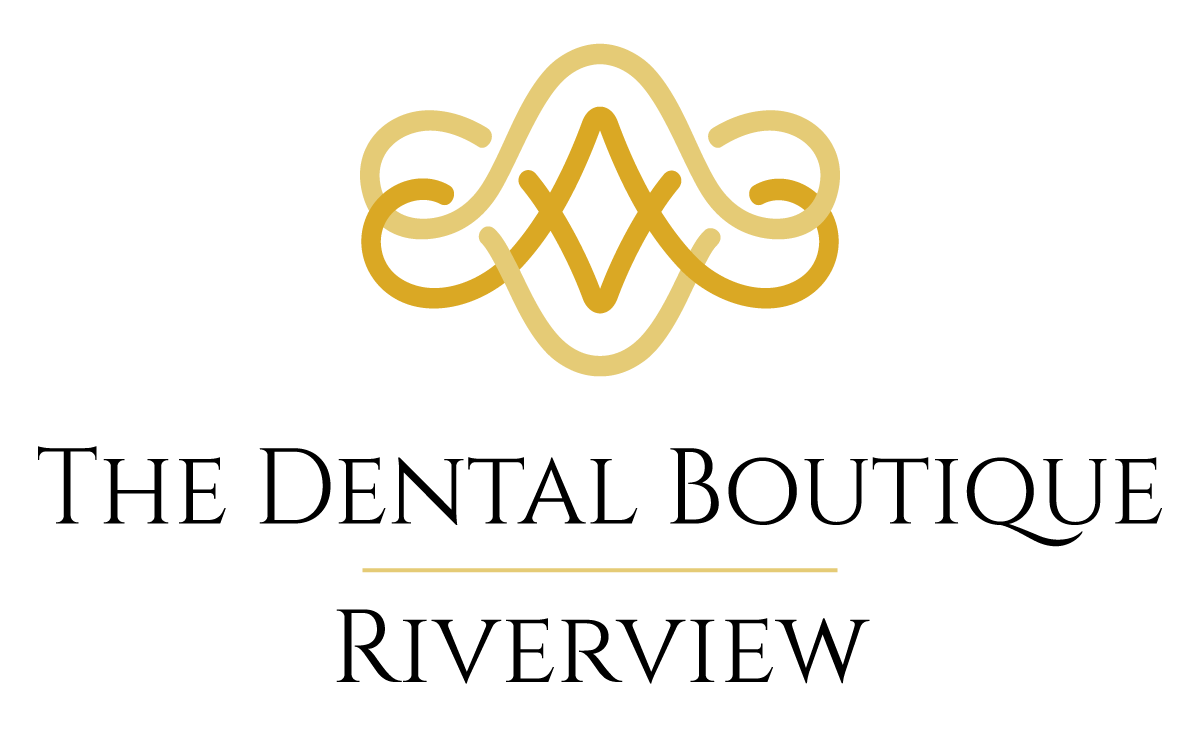Combatting Bruxism: Effective Solutions from The Dental Boutique Riverview
Bruxism, also known as teeth grinding, is a common condition affecting millions of people worldwide. It can cause significant damage to your teeth, jaw, and overall oral health if left untreated.
Teeth grinding is often an unconscious habit that occurs during sleep or in response to stress and anxiety. In some cases, bruxism can be a result of an abnormal bite or misaligned teeth. When left untreated, bruxism can lead to tooth wear, enamel damage, cracked or chipped teeth, temporomandibular joint (TMJ) disorders, and facial pain. Moreover, the constant clenching and grinding can lead to increased muscle tension and discomfort in the face, neck, and jaw, impacting your overall well-being and quality of life.
It's crucial to identify the symptoms of bruxism early on to minimize potential damage to your teeth and jaw. Common signs include worn tooth enamel, increased tooth sensitivity, jaw pain or tightness, and frequent headaches. If you suspect that you grind your teeth, it is essential to consult with a dental professional like the experts at The Dental Boutique Riverview. Our team will perform a thorough oral examination and employ advanced digital technology to accurately diagnose the extent of your bruxism.
At The Dental Boutique Riverview, our skilled and experienced dental professionals will create a personalized treatment plan to help you manage and reduce bruxism. This may include dental solutions such as custom-made mouth guards to protect your teeth during sleep or orthodontic treatments to correct bite issues. In addition, we also focus on patient education to help you understand the root causes of bruxism and develop stress-reduction techniques to alleviate teeth grinding. In this blog post, we will discuss the causes and effects of bruxism and explore expert-approved treatments to address this issue.
The Effects of Bruxism on Your Oral Health
Bruxism can have significant consequences on your oral health if left unaddressed. Some of the common effects of teeth grinding include:
1. Tooth Wear: The constant grinding erodes tooth enamel and can result in shorter or flattened teeth.
2. Tooth Damage: The excessive forces exerted during bruxism can cause teeth to chip, crack, or fracture.
3. Gum Recession: Bruxism can lead to receding gums and even tooth loss in severe cases.
4. Facial Pain: Clenching and grinding can result in muscle tension, soreness, or pain in the face and jaw.
Identifying Bruxism
To effectively combat bruxism, it's essential to identify the symptoms and seek professional help. Some common signs to watch out for include:
1. Tooth Sensitivity: The wearing away of enamel from grinding can expose the tooth's dentin, leading to increased tooth sensitivity.
2. Jaw Pain: The tension and stress exerted on the jaw muscles can lead to discomfort or pain.
3. Morning Headaches: Those with bruxism often experience dull headaches in the morning since they clench and grind their teeth during sleep.
4. Sleep Disturbances: Bruxism can awaken your partner or yourself due to the grinding sounds.
If you experience any of these symptoms, it is recommended to schedule an appointment at The Dental Boutique Riverview for a thorough evaluation.
Treatment Options for Bruxism
There are several treatment options for bruxism, depending on the severity and the root cause. Below are some of the most common treatments provided at The Dental Boutique Riverview:
1. Custom-Made Mouth Guards: These dental appliances are worn during sleep to protect your teeth from damage caused by teeth grinding.
2. Dental Restoration: In cases where the bruxism has led to significant tooth damage, dental restorations, such as crowns, may be necessary to repair and protect the affected teeth.
3. Orthodontic Treatment: If bruxism is a result of bite misalignment, orthodontic solutions may be recommended to correct the problem.
4. Stress Management: Since bruxism is often linked to stress and anxiety, incorporating relaxation techniques, such as meditation and breathing exercises, can help reduce teeth grinding.
5. Behavior Modification: Awareness of the problem can help with conscious behavior changes to minimize grinding during the day.
Bruxism Prevention Tips
While bruxism cannot always be prevented, implementing some healthy oral habits can help minimize the risk and manage existing bruxism:
1. Regular Dental Checkups: Your dental professional can detect early signs of bruxism and recommend appropriate interventions to prevent further damage.
2. Mindful Relaxation: Practicing relaxation techniques, such as deep breathing exercises or meditation, can help manage stress and anxiety levels.
3. Avoiding Stimulants: Limiting your intake of stimulants such as caffeine and alcohol can reduce teeth grinding, especially in the hours before bedtime.
4. Limit Chewing on Non-Food Items: Refrain from biting on pens, pencils, or other non-food items, as this can put undue stress on your teeth and jaw.
Conclusion
Bruxism is a prevalent dental problem that, if left untreated, can lead to significant damage to your teeth and jaw. By understanding the causes, recognizing the symptoms, and seeking appropriate intervention at The Dental Boutique Riverview, you can effectively combat this condition and maintain a healthy, radiant smile. Whether you require a custom-made mouth guard or dental restorations, our team of experienced dental professionals is committed to providing personalized, advanced dental care to help you overcome bruxism and achieve optimal oral health.
If you're experiencing symptoms of bruxism or simply want a dental check-up to ensure optimal oral health, schedule an appointment at The Dental Boutique Riverview today. The Dental Boutique Riverview is a state-of-the-art provider of advanced digital and
restorative dental care, offering effective solutions to help you combat bruxism and maintain optimal dental health. Our dedicated team of dental professionals is here to help you achieve a healthy, beautiful smile. Contact us now!
Share This Post

